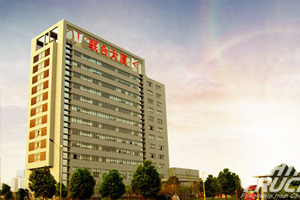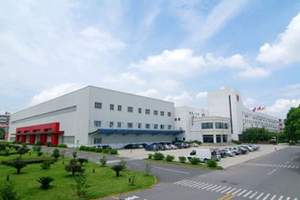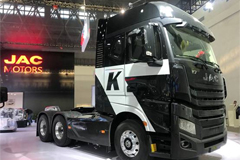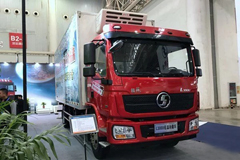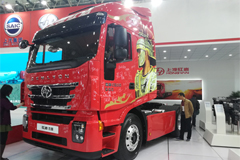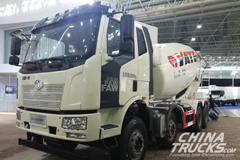China rethinks tax changes amid slowdown
Chinese authorities could be forced to roll back new tax rules that had threatened to strike yet another blow against the country's struggling factory owners doing business with companies overseas.
The proposed tax laws are designed to bring China more closely into line with other developed economies when it comes to 'transfer pricing' - the value placed on cross-border transactions between related entities.
But in their current format the rules will add a big cost of compliance for even relatively small Chinese producers who are churning out more grim economic data on a daily basis.
"The price of labour is going up in China and international commerce is so fluid that [the new tax rules]could have foreign companies taking a very close look at their Chinese operations," said Greg Noble, a tax partner at Ernst & Young LLP in Vancouver.
The latest bad news out of China came Monday courtesy of the official China Federation of Logistics and Purchasing. The CFLP said China's purchasing managers' index – a measure of factory production plunged to a record low of 38.8 in November from 44.6 in October.
"The slump was driven by a sharp fall in new orders, especially new export orders," said Merrill Lynch economists Ting Lu and TJ Bond.
Officials in Beijing are well aware that the country's manufacturers need a break and it now seems likely they will change their proposed new tax laws so that only the largest businesses will have to comply, said a Hong Kong-based tax specialist.
In an attempt to ease the burden on smaller businesses, China's State Administration of Taxation will likely raise the revenue-based threshold for determining which entities must comply to 15 times what was in the original proposal, said Steven Carey, a partner with Transfer Pricing Associates in Hong Kong.
New proposals that are more favourable to small businesses could be unveiled in the next two weeks, Mr. Carey added. The laws are due to come into effect in January. In their current format, they would see Sino-foreign joint-ventures and Chinese subsidiaries of foreign companies with revenue of as little as $1.5-million forced to prepare reams of documentation to support their transfer pricing policies.
The likely reversal comes as some Chinese leaders, including Premier Hu Jintao, have been at pains to acknowledge a realistic view of the downturn.
"External demand has obviously weakened and China's traditional competitive advantage is being gradually weakened," Mr.Hu said, according to the Communist Party's official People's Daily newspaper.
His somber view echoed that of Human Resources minister Yin Weimin who has called the outlook for China's job market "grim" and cited labour unrest as a top government concern.
The Chinese leadership has shown it is willing to pull out all the stops to get the country back on track.
Beijing recently announced a US$586-billion economic stimulus and public spending package. Last week the People's Bank of China cut interest rates by the biggest margin since the Asian Financial Crisis of 1997. Further interest rate cuts as well as reform of fuel pricing policy are also pending.
Chinese government sources say Beijing could slash the country's benchmark interest rate again, lower banks' reserve requirements further, or raise the threshold for personal income taxes to exempt more people. The government is also expected to publish for public consultation new proposals for oil price and tax reform within the next two weeks. The proposals will likely include replacing an existing system of road and waterway tolls with a fuel consumption tax. The government is also likely to introduce a market-based approach to pricing for refined fuel products.
After years of rapid growth, China's export-driven manufacturers have been struggling to deal with rising costs and lower demand for their produce. New labour laws and environmental rules added to the cost of business for many Chinese factories even before the global slowdown hit demand for Chinese goods.
Since then, thousands of factories have closed their doors, leading to violent strikes and riots in a number of Chinese cities.
Official Chinese forecasts estimate annual gross domestic product growth will slow to 8% this quarter from 9% percent in the third quarter. The World Bank says it expects China's growth to fall to 7.5% next year, its slowest rate of expansion in nearly two decades.
The Chinese economy will slow further for several more months before a rebound begins in mid-2009, according to Merrill Lynch's forecast.
Views:0
- Scania Adds Powertrain Production to Its Production Base in Rugao, China 2023-11-01
- China Exported 63,000 Trucks in May, Up 33% YoY 2023-07-11
- SANY Awarded as 2022 Forbes China TOP 50 Sustainable DEV Industrial Enterprises 2023-03-23
- SINOTRUK Participates in the Selection of "National Star of China Trucks" 2023-01-31
- Half of Vietnam Truck Imports Are from China? 2022-10-24
- Daimler Truck Starts Local Production of Mercedes-Benz Branded Trucks in China 2022-09-26
- CATL Announces Its MTB Tech to be Applied to Battery-swapping Heavy Trucks 2022-09-19
- Liuzhou Motor Showcases Three Products at the 19th China-ASEAN Expo 2022-09-19
- CATL Among Top 50 Forbes China Most Innovative Companies 2022-08-26
- Qingling Isuzu Delivers First Batch of VC 61 to Mongolia 2022-05-17
Submit Your Requirements, We Are Always At Your Service.
- Jiefang Partners with FCTS to Develop Hydrogen-Powered Car Transport Vehicles
- Farizon Auto Sets Roadmap for Global Expansion
- JMC Assembles Kaiyun Euro 5 Models in Vietnam
- SuperPanther Teams up with DHL for Sustainable Logistics
- SuperPanther Partners with Steyr Automotive to Launch Electric Heavy-Duty Trucks
- JAC Showcases T9 EV Pickup at 2024 EVA Frankfurt Electric Vehicle Expo
- Zoomlion Reports Record Overseas Revenue Growth for H1, 2024
- Madagascar President Rajoelina Visits Foton Motor
- European Premiere for Kia PBV at IAA Hannover 2024
- SAIC Maxus RV Debuts at Düsseldorf Caravan Show in Germany
- Heavy Truck Sales Reach 59,000 Units in July in China
- Tractor Sales in H1, 2024 Reached 162,100 Units, Up 4%
- China's Truck Export Reaches 351,076 Units in H1 2024
- XCMG Dominates 2024 with Record Sales in New Energy Heavy Trucks
- Mid-Year Pickup Market Report: JAC Exports Up 13%, JMC Exceed 36,000 Units
- Truck Exports in May 2024: China Exported Close to 65,000 Trucks
- Exports of Pickups Reached 22,892 Units in May
- Exports Surge by 157%! DFAC Exports 9,628 Vehicles from January to May
- China's Heavy Truck Exports Rising 58% YOY to 276,000 Units in 2023
- China Exported 507,000 Trucks from Jan.-Sept., Up 21% YoY


